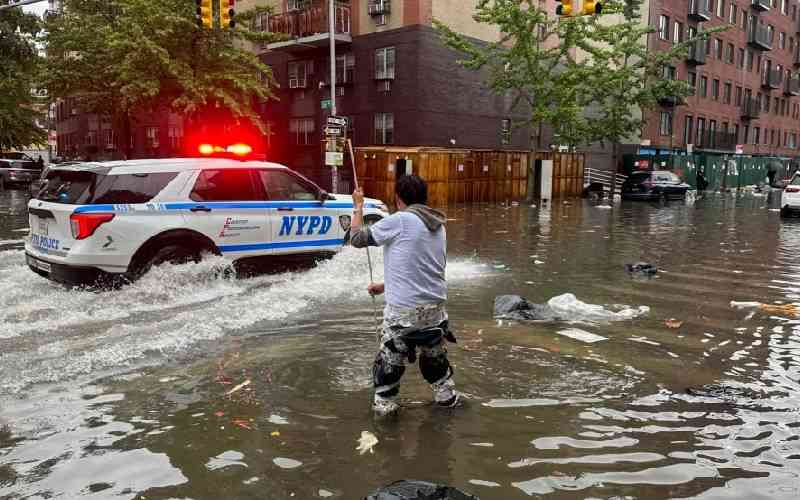×
The Standard e-Paper
Kenya’s Boldest Voice

New York City began drying out Saturday after being soaked by one of its wettest days in decades, as city dwellers dried out basements and traffic resumed on highways, railways and airports that were temporarily shuttered by Friday's severe rainfall.
Record rainfall - more than 8.65 inches (21.97 centimeters) - fell at John F. Kennedy International Airport, surpassing the record for any September day set during Hurricane Donna in 1960, the National Weather Service said.